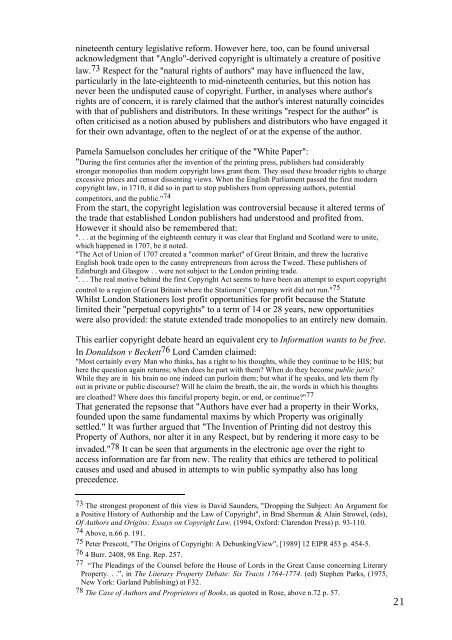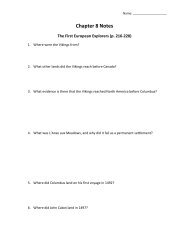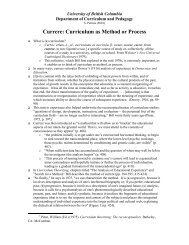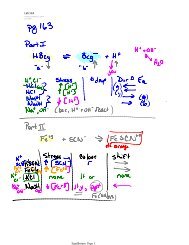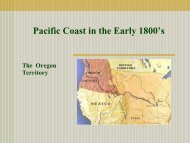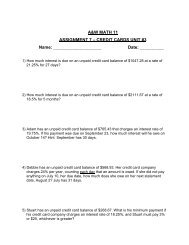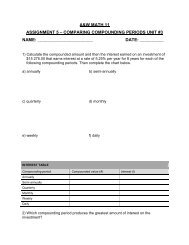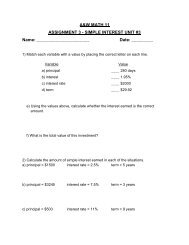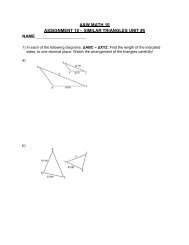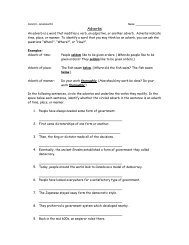ETHICAL BOUNDARIES AND INTERNET CULTURES
ETHICAL BOUNDARIES AND INTERNET CULTURES
ETHICAL BOUNDARIES AND INTERNET CULTURES
You also want an ePaper? Increase the reach of your titles
YUMPU automatically turns print PDFs into web optimized ePapers that Google loves.
nineteenth century legislative reform. However here, too, can be found universal<br />
acknowledgment that "Anglo"-derived copyright is ultimately a creature of positive<br />
law. 73 Respect for the "natural rights of authors" may have influenced the law,<br />
particularly in the late-eighteenth to mid-nineteenth centuries, but this notion has<br />
never been the undisputed cause of copyright. Further, in analyses where author's<br />
rights are of concern, it is rarely claimed that the author's interest naturally coincides<br />
with that of publishers and distributors. In these writings "respect for the author" is<br />
often criticised as a notion abused by publishers and distributors who have engaged it<br />
for their own advantage, often to the neglect of or at the expense of the author.<br />
Pamela Samuelson concludes her critique of the "White Paper":<br />
"During the first centuries after the invention of the printing press, publishers had considerably<br />
stronger monopolies than modern copyright laws grant them. They used these broader rights to charge<br />
excessive prices and censor dissenting views. When the English Parliament passed the first modern<br />
copyright law, in 1710, it did so in part to stop publishers from oppressing authors, potential<br />
competitors, and the public." 74<br />
From the start, the copyright legislation was controversial because it altered terms of<br />
the trade that established London publishers had understood and profited from.<br />
However it should also be remembered that:<br />
". . . at the beginning of the eighteenth century it was clear that England and Scotland were to unite,<br />
which happened in 1707, be it noted.<br />
"The Act of Union of 1707 created a "common market" of Great Britain, and threw the lucrative<br />
English book trade open to the canny entrepreneurs from across the Tweed. These publishers of<br />
Edinburgh and Glasgow . . were not subject to the London printing trade.<br />
". . . The real motive behind the first Copyright Act seems to have been an attempt to export copyright<br />
control to a region of Great Britain where the Stationers' Company writ did not run." 75<br />
Whilst London Stationers lost profit opportunities for profit because the Statute<br />
limited their "perpetual copyrights" to a term of 14 or 28 years, new opportunities<br />
were also provided: the statute extended trade monopolies to an entirely new domain.<br />
This earlier copyright debate heard an equivalent cry to Information wants to be free.<br />
In Donaldson v Beckett 76 Lord Camden claimed:<br />
"Most certainly every Man who thinks, has a right to his thoughts, while they continue to be HIS; but<br />
here the question again returns; when does he part with them? When do they become public juris?<br />
While they are in his brain no one indeed can purloin them; but what if he speaks, and lets them fly<br />
out in private or public discourse? Will he claim the breath, the air, the words in which his thoughts<br />
are cloathed? Where does this fanciful property begin, or end, or continue?" 77<br />
That generated the repsonse that "Authors have ever had a property in their Works,<br />
founded upon the same fundamental maxims by which Property was originally<br />
settled." It was further argued that "The Invention of Printing did not destroy this<br />
Property of Authors, nor alter it in any Respect, but by rendering it more easy to be<br />
invaded." 78 It can be seen that arguments in the electronic age over the right to<br />
access information are far from new. The reality that ethics are tethered to political<br />
causes and used and abused in attempts to win public sympathy also has long<br />
precedence.<br />
73 The strongest proponent of this view is David Saunders, "Dropping the Subject: An Argument for<br />
a Positive History of Authorship and the Law of Copyright", in Brad Sherman & Alain Strowel, (eds),<br />
Of Authors and Origins: Essays on Copyright Law, (1994, Oxford: Clarendon Press) p. 93-110.<br />
74 Above, n.66 p. 191.<br />
75 Peter Prescott, "The Origins of Copyright: A DebunkingView", [1989] 12 EIPR 453 p. 454-5.<br />
76 4 Burr. 2408, 98 Eng. Rep. 257.<br />
77 “The Pleadings of the Counsel before the House of Lords in the Great Cause concerning Literary<br />
Property. . .”, in The Literary Property Debate: Six Tracts 1764-1774. (ed) Stephen Parks, (1975,<br />
New York: Garland Publishing) at F32.<br />
78 The Case of Authors and Proprietors of Books, as quoted in Rose, above n.72 p. 57.<br />
21


